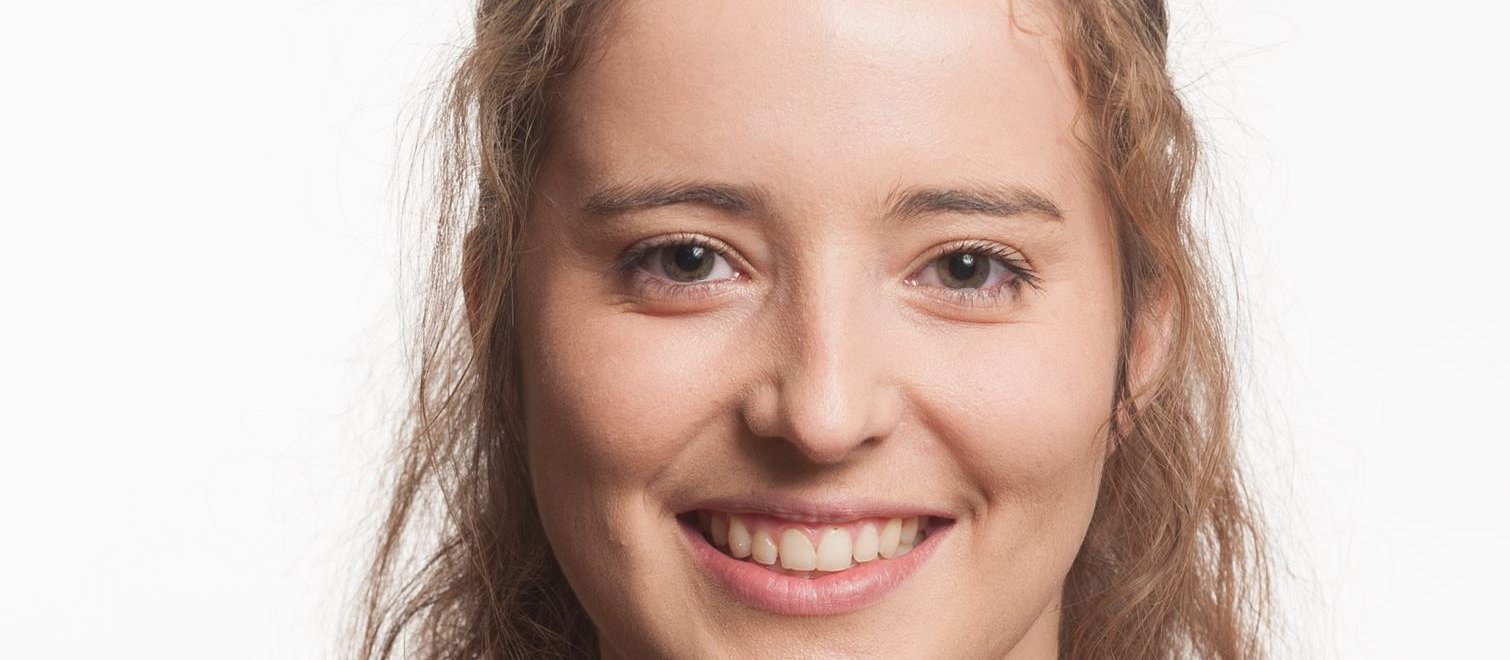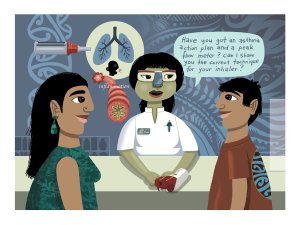Academic pharmacist Nataly Martini discusses the medical management of asthma in adults and adolescents, which has evolved to prioritise early anti-inflammatory treatment. She also explains how to improve patient outcomes by proactively identifying poor asthma control and supporting equitable access to education and treatment
Educational videos make a difference to perceptions of pharmacy
Educational videos make a difference to perceptions of pharmacy

Frustration at patients’ lack of understanding about pharmacy prompted Paige Rangi, then a pharmacy student, to study what could be done, writes Paulette Crowley
A new study has found that videos promoting pharmacy services can help inform the public’s perception of what pharmacists do.
The Impact of Promotional Videos on Public Perception of Pharmacy Services study, published in the Journal of Pharmacy Practice on 16 May, was prompted by Paige Rangi (Ngāti Kahungunu), then working as a student in community pharmacy in Napier.
Ms Rangi, now a clinical pharmacist in general practice for Tararua Health Group, says she was shocked that many of the pharmacy’s patients had no idea what pharmacists did beyond counting pills.
She says that some people didn’t think they had been trained in medicines and told her they’d rather take advice from their doctor.
“I was trying to practice my counselling skills and found it quite frustrating that a lot of people didn’t seem to want information about their medication...they didn’t seem to understand what we did.”
She found herself repeatedly explaining what pharmacists did. “A lot of my family members are not involved in the health sector. I found that I was having to explain my job over and over. When I told them, they were all really surprised.”
As part of an honour’s programme project at the School of Pharmacy at the University of Auckland, she studied people’s perceptions of pharmacy before and after, showing them promotional videos created by the Pharmaceutical Society, which are available for download on YouTube.
The study, co-authored by Carlo Marra and Mudassir Anwar from the University of Otago, found the PSNZ videos were an effective tool for educating New Zealanders on the range of pharmacy services.
Results from a self-administered online questionnaire completed by 313 participants were used in the study’s final analysis.
When asked what pharmacy services they were aware of, participants were most familiar with the sale of OTC medicines (84 per cent), beauty products (78.6 per cent) and giving health advice (78.3 per cent).
The services the participants were least aware of included warfarin INR monitoring (5.8 per cent), infection testing (sexually transmitted infection testing, throat swabs) (10.2 per cent), long-term conditions (LTC) service (23.6 per cent), treating urinary tract infections (UTIs) and erectile dysfunction (23.6 per cent), and methadone programmes for addiction treatment (24.3 per cent).
After watching the PSNZ videos, just over 90 per cent of the study’s participants reported they were more aware of services that pharmacists and pharmacies could offer, and nearly twothirds indicated they would be more likely to visit a pharmacy in the future.
About 40 per cent of participants said they had increased their trust of pharmacy professionals after watching the videos.
The study’s authors concluded that the PSNZ videos could be impactful in raising awareness of pharmacy and engaging the public.
Ms Rangi says she was surprised at how valuable the videos were as she didn’t think there was enough detail to make much of a difference to people’s perceptions of pharmacy.
She was also surprised at some comments participants wrote in their open-text answers. One mentioned they didn’t think pharmacists had to go to university, and another said they didn’t realise that pharmacists could be approached behind the big white walls of the dispensary.
“I was quite flabbergasted by how many people didn’t even think we were educated,” Ms Rangi says.
The PSNZ videos used in the study have been used every year since 2018 in targeted campaigns to promote pharmacy services to the public, according to Renata Spies, communications advisor at PSNZ.
The most recent ‘See Your Pharmacist First’ awareness campaign was run on Facebook from 20 March to 8 April, Ms Spies says.
“We plan to continue to use these videos as part of our communication strategy,” Ms Spies says in a written statement.





